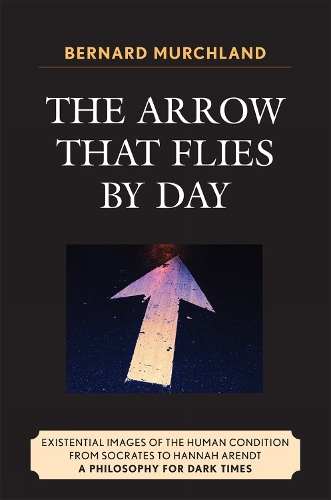
The Arrow that Flies by Day: Existential Images of the Human Condition from Socrates to Hannah Arendt
(Paperback)
Publishing Details
The Arrow that Flies by Day: Existential Images of the Human Condition from Socrates to Hannah Arendt
By (Author) Bernard Murchland
University Press of America
University Press of America
25th June 2008
United States
Classifications
Tertiary Education
Non Fiction
128
Physical Properties
Paperback
150
Width 153mm, Height 231mm, Spine 14mm
245g
Description
This study contends that existentialism is the perennial philosophy thus going against the assumption that it is a school of more recent provenance. Anthologies or introductory texts used begin with Kierkegaard (the so-called father of existentialism) and go on to emphasize Nietzsche, Sartre, and Heidegger. This book reflects a more catholic mapping, including three thinkers from the classical period (Socrates, Augustine, and the Stoics), who are argued to be just as 'existential' as more modern thinkers (who are also treated) and indeed influence the latter in important ways. Also included are three Americans (Thoreau, James, and Hannah Arendt) who are rarely considered existentialists. Furthermore, the book has a pedagogical emphasis, reflecting students' points-of-view: what they learn, how they react, questions they have, and how in general existentialism meets their education needs and expectations. It is, therefore, necessarily interdisciplinary in character, pointing out implications of existentialism for education, concerns like happiness, war and peace, democracy, sexuality, and terrorism.
Reviews
Bernard Murchland takes readers on a learned journey into a land of important questions and accessible answers. -- George Cotkin, author of Existential America and Feast of Excess
...Throughout he writes with a Graham Greene-like clarity of style. His book is informative, enjoyable to read and convincing. He makes the case that existentialism is indeed a perennial philosophy and one best suited to guide us through these dark times. -- Robert Flanagan, Poet and Novelist, author of Maggot and Naked to Naked Goes
All in all a fine piece of work, very well written and structured. Murchland's chapters on Socrates and the Stoics demonstrate that existentialism has deep historical roots. -- William McBride, Department of Philosophy, Purdue University
A rich foundation for understanding later existentialist movements....Mindful of the distinction between studies of subjectivity versus mere relativistic forms of subjectivism....Recommended. Two-star review. * Choice Reviews *
Murchland presents his book in a style that is both beautifully written and personally engaging... His chapter on Albert Camus is excellentwell written, appropriately personal and right on target, especially his handling of the North African connection with Augustine and Plotinus. That adds a dimension to the study of Camus that is almost always missing. -- David Spritzen, author of Camus: A Critical Examination
Author Bio
Bernard Murchland is Professor of Philosophy at Ohio Wesleyan University and the Editor of The Civic Arts Review.
